“I really enjoy playing with words and figures of speech. ‘Da liegt der Hund begraben¹’ – ‘That’s where the dog is buried’; so visceral. Or ‘ein roter Faden²’ – ‘a red thread’; it’s just so brilliant. So I consciously translate those things literally and use them.”
Adam Lawrence
Actor, comedian, director, lecturer, facilitator, and author Adam StJohn Lawrence has a degree in animal psychology, and in addition to his native English, he speaks fluent German, a little Swedish, French, and Japanese. Today, first and foremost, he’s a business partner of the internationally operative WorkPlayExperience, a service innovation and customer experience consultancy located on the southern edge of Gostenhof in Nuremberg. As I approach the entrance door, small children run past me, laughing on their way to the after school playgroup in the house’s basement.
Adam welcomes me in a very cheerful manner. His stocky build adds to the feeling of friendly confidence and assuredness. He seems very comfortable in his surroundings, and as he later says, it’s important for him that people around him are enjoying themselves. In fact, he says his friends call him ‘Blue Helmet’ because of this “strong need for harmony, not compromise, but co-creative ways to move forward that include different people’s needs. It drives some people nuts, and I understand that.”
After collecting a coffee, we retreat upstairs where we enter into a space I can best describe as feeling like a grown-up’s playroom in the attic. Lots of sophisticated cardboard furniture, screens and walls are strewn with hundreds of post-it notes. He explains they recently hosted another ‘Jam,’ something he’s been doing since 2010. The Jams are opportunities for people to learn more about ways of working together. Participants are confronted with a problem to which they need to find an answer within 24 or 48 hours. Crucially it’s not the solutions that are important in this accelerated process, but the experiences people go through, the way it changes them and the people they meet. “Just like jamming music isn’t about producing an album, it’s about the opportunity to play with other musicians, learn, experience and have fun“.
It’s a concept they thought would be a small event but rapidly snowballed into something which today is really big. “It made us quite well known in our small world.”
Besides smaller Jams, there are two big global Jams each year, the Global Service Jam and Global Gov Jam. People all around the world volunteer to host them, sometimes universities, sometimes companies. Important is achieving a diverse mix of participants, and rules stipulate the events have to be open to the public.
Adam grew up in Suffolk, England. His parents, who worked in the prison service before changing to social work and teaching, provided a comfortable home. Attending an experimental school, he managed to skip a couple of years early on and so was much younger than his classmates. Later on, becoming a Prefect at school, he recalls having to keep other pupils inline who were four years older than himself. Being younger and physically smaller had some drawbacks, especially in the corridors and playground, which he recalls as being quite tough. Having good friends and using humour to get out of difficult situations was important.
I was curious about the StJohn (pronounced “Sinjin”) in his name and whether it’s part of a hyphenated family name. He tells me it’s actually his middle name given to him at birth because his parents liked how it looked.
After completing his degree and no specific inclination in which direction to go next, even toying with joining the police force, he finally joined the marketing team at Honda, where the low hierarchy and friendly, playful atmosphere appealed to him.
He recalls Britain in the 1990s as being an “inward-looking, fairly bleak place where there was a celebration of ignorance,” which he found unappealing and so, aged 22, decided to “head out.” Unsure in which direction, Canada and France were in the running, but after reconnecting with a childhood friend from Germany, that’s where he went. He recalls travelling to Germany on the bus the same night as Britain left the exchange rate mechanism (the European monetary system preceding the Euro). Being well received in Germany, he soon felt comfortable in his new surroundings.
There were aspects such as all the unfamiliar paperwork necessary here and having to get registered, which required some getting used to:
“Why must the German government know my religion? Why is the government collecting taxes for the church? That doesn’t feel right to me, having grown up with a different interpretation of the separation of church and state. That was quite a feeling of alienation for me. But at the same time, meeting incredibly generous and welcoming people and loving the longer summers, the better weather and the crisp winters. Good times.”
Another thing he likes about Franconia is the beer “we’ve got Aufseß up the road with the world’s highest density of breweries per population, and the craft beer revolution has made it even more exciting, I really enjoy that. And my waistline shows it.”
Overall Adam likes the feeling of being in the centre of Europe and Nuremberg being at the crossroads of north-south and east-west routes, both historically, as well as today. He says, “Whilst the island, the coastline, fish and chips, East Anglian Churches, all have their charms, this connectivity is much more me. That feeling of a multitude of languages and viewpoints and a more or less shared worldview, which I enjoy.”
Before coming to Germany he couldn’t speak the language and says Star Trek helped out. He religiously played reruns of the original series dubbed into German, knowing the stories he just had to work out what was being said. Later he took a course at the Volkshochschule and soon was able to hold a conversation and “once you can start asking how do I say this or that, then you start to get it.”
In Erlangen, Adam soon encountered the English Dramatic Society. Although he had no background in theatre, he soon became involved, eventually playing stage roles and being asked if he wanted to work professionally in theatre. This led to a decade or so of staging 150 to 200 shows a year, six shows a week at peak periods. Today, he has other priorities but is still acting in and directing plays with the ‘Theatre im Tiergarten‘ in Nuremberg. Whilst he considers himself somewhat limited in his serious acting talents, he makes up for this again by resorting to improvisation and humour.
First, psychology and zoology, then moving into marketing, which he says was not such a big jump because of concepts such as perception of the product or communication around offering the product, followed by what he considers a big switch into theatre, and then design. Looking back, he realises there’s a ‘red thread’ running through all these things:
“What I’m trying to do is, I’m trying to help someone (Blue Helmet again), or even make someone feel a certain way. If I’m a psychotherapist, I’m trying to use my words and their words to help them feel better. As a motorcycle planner, I use steel, plastics, rubber and gasoline to make someone feel excited. And if I’m on stage, I’m using movement and lights, music and words, again, to make people in the audience feel something. So all these things end up with somebody feeling satisfied or well served. I call it the handcraft of emotion. And I think that all of those things I’ve done (in the past) really are the same thing. Now it’s Service Design. The things I design are not physical things, they’re part of it, but it tends to be about the experiences people have or services people are part of.”
What is ‘Service Design,’ I ask? Adam explains that it’s about people and collaboration, finding ways of working together that produce value, which makes sense to the consumer but also to the employees working behind the scenes, giving them the feeling they’re doing something valuable and giving them more job satisfaction – as well as business success. “We call this kind of design Service Design or sometimes Design Thinking.”
He says he initially got into it by writing a blog looking at theatricality in the business field. He considers there to be many elements in business with parallels in theatre such as uniform or costume, lighting, timing, role status, even dramatic arcs.
…some people, who I later found out are quite famous in this field, pop up on my blog, saying this is interesting. And I find out about ‘Experience Design’, and ‘Service Design,’ and look, they’ve got all these tools I’ve never thought of. Wonderful, let me learn all of those. And we discover that we here in Nuremberg have lots of tools that they haven’t got because we come from theatre. So we have these theatrical tools which people around the world are now using.”
Although Adam and his company operate worldwide, it occurs to me a little ironic that a company promoting customer service should be based here in Franconia. Many people who move here from afar soon experience customer service isn’t always a strong point of the native population. So I ask him if there is such a thing as a Franconian character?
“Oh, yes. I’ve played theatre pretty much all over Germany. The audiences are very different. And that’s a snapshot into a character. I walk out on stage in Cologne, and they start laughing, just such an easy audience because they show their emotions. On the other hand, they laugh at anything, even if I’m rubbish. So it’s not very rewarding. Whereas, if you’re down in Franconia, and you get a ‘war nicht verkehrt’ (wasn’t too bad) or something like this, then you think, ‘Oh, yes. Well done me.’ That’s a big moment to get them laughing and relaxing. Franconians don’t get excited easily, they don’t really get effusive, and they are not easily angry. That can seem quite cold to people from the Rhineland or Spain, but it’s not cold; it’s just a different way of expressing emotion.
And I’ve grown to like that; I find Franconia to be very hospitable. I found Franconians to be very interested in the outside world. We have these companies around here, Siemens, adidas, Puma, Schaeffler, Fraunhofer Institute, that really bring in attention from all around the world and people from all around the world. I think that’s super, super healthy, and I think, in most of my experiences, the attitude to that locally has been super positive.”
Adam also has a hobby, as he phrases it ‘medieval silliness.’ He explains:
“We dress up in funny clothes at the weekend, put up our funny tents or rent a castle, then we cook food together, share the beer that we’ve brewed, sing, dance, and tell stories. We smack each other on the head with sticks, or whatever, and call it medieval recreation, not reenactment, but recreation. It’s a very international group with people from all over the world. We’re not super historically accurate, but in it for the brilliant fun, to feel the weather, the wind, the smell, the campfire, an atmosphere that’s not like the rest of the week. It’s great for people who are looking for contact and have free time at the weekend.”
It’s all part of a global organisation called the SCA. The local group in Franconia is called ‘Turmstadt,’ named after the towers of Nuremberg.
Doing all these different things I ask where he gets his energy from, to which he replies “People!”. He says he nonetheless has a strong introvert preference and needs time alone to recharge. During the period of lockdown due to the Covid-19 pandemic, he was able to be productive but the endless zoom calls were exhausting. Being back among people doing things again is physically tiring but emotionally recharging. He thinks this might be the actor in him being needy of affirmation from the audience, seeing people smiling back at him.
I ask him if it’s still possible to be British and European after Brexit, to which he replies:
“Brexit was emotionally a big thing for me. I hadn’t ever thought about getting German nationality because I had a European passport. Now I have both nationalities, but I’m also very aware that if I have to give up one, I’ll give up the UK. Absolutely no question, no hesitation involved. This is my home.”
We’ve run well over the scheduled time so I thank him for the chance to talk and we return downstairs. It’ 5.30pm as I leave the building, lights stream out of the basement where the playgroup is still ongoing.
¹ ’Da liegt der Hund begraben’ is a saying in German whose meaning is often debated but essentially means ‘that’s the crux of the matter’
² ‘Ein roter Faden’ means ‘a common thread’
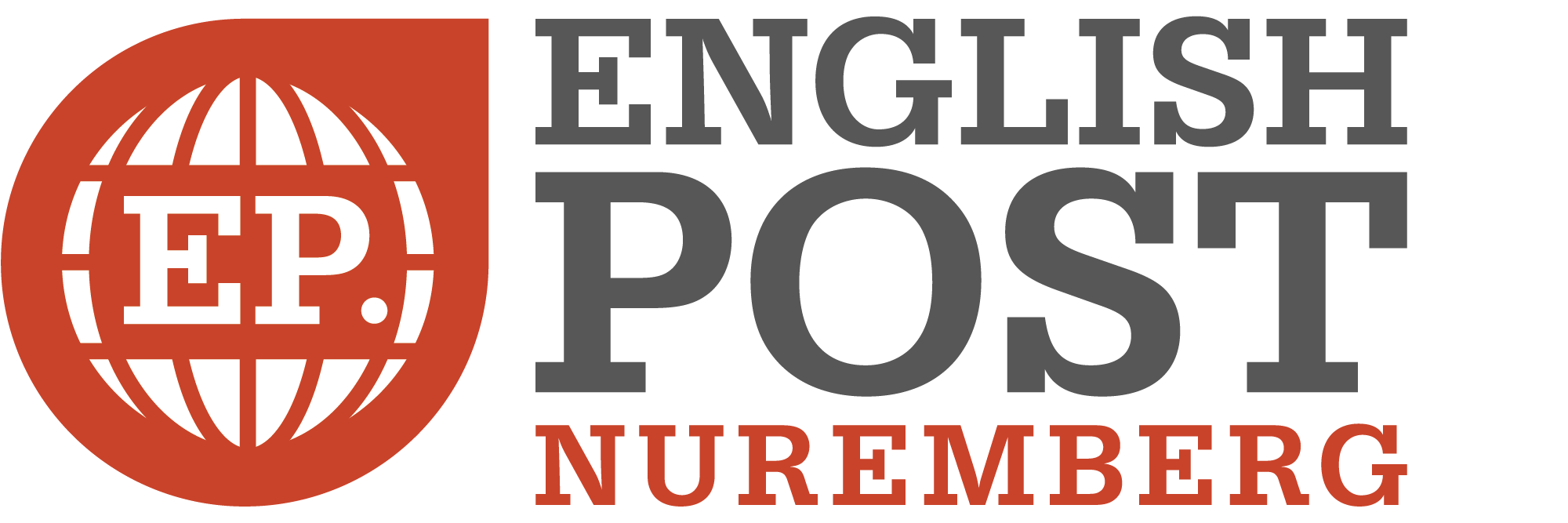

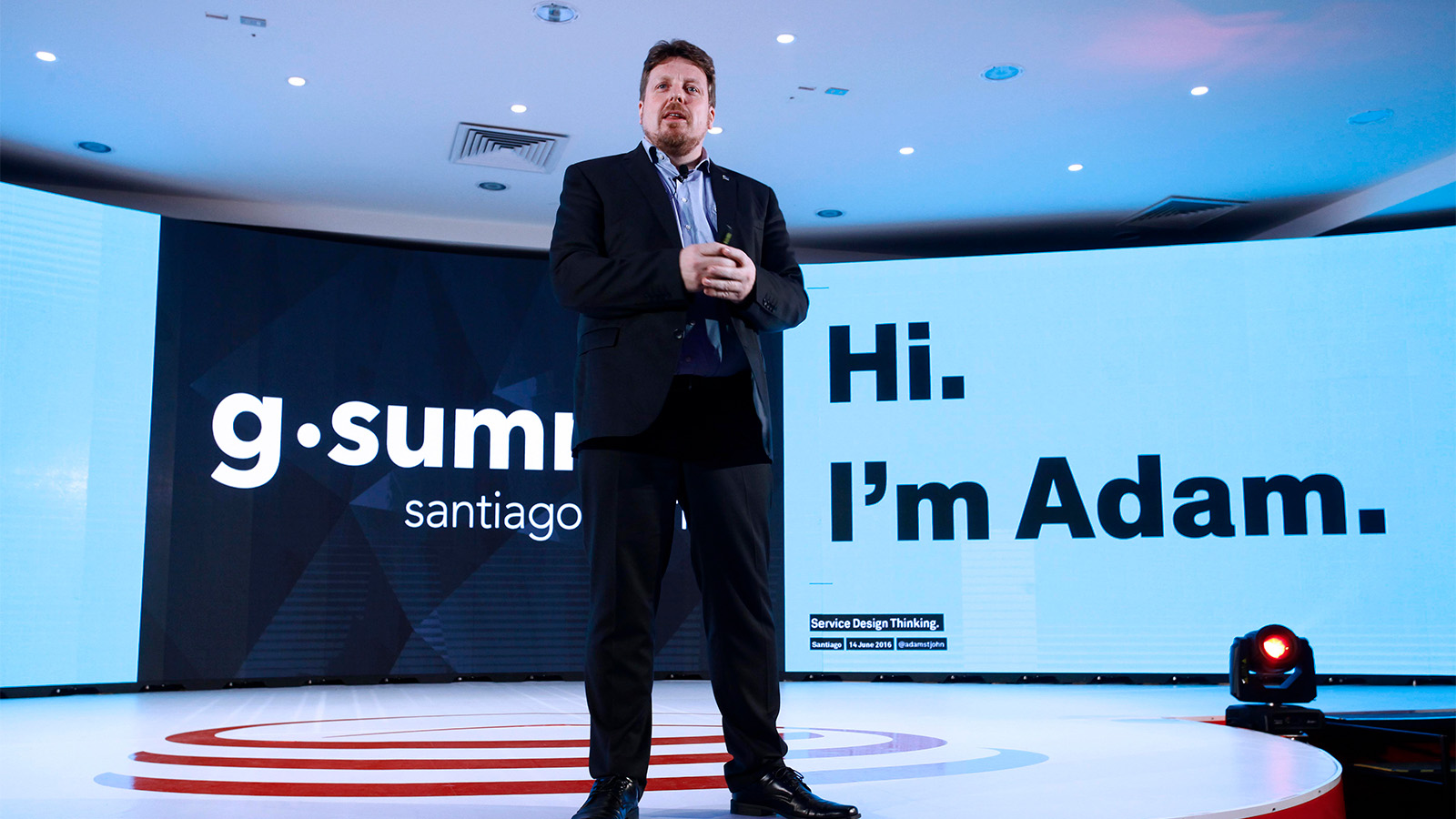
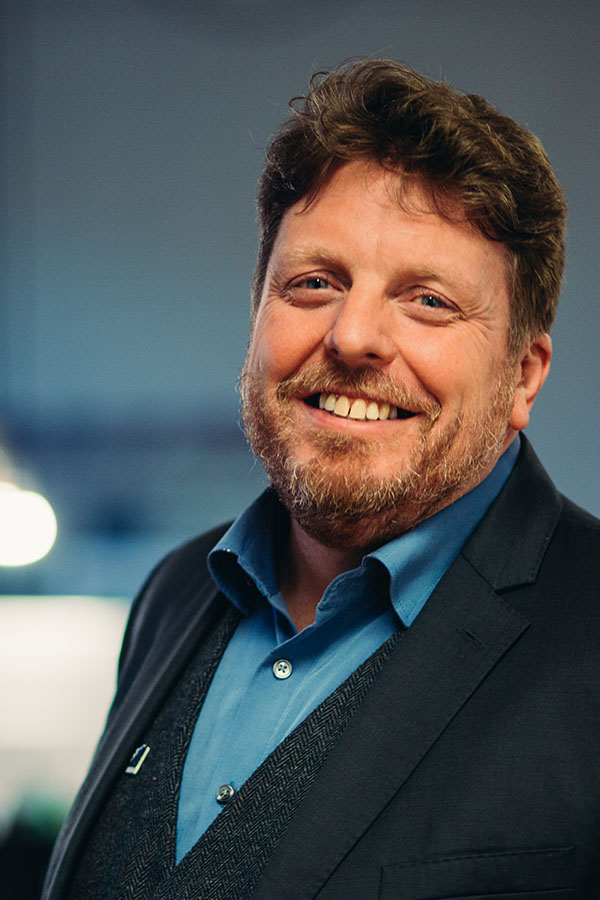
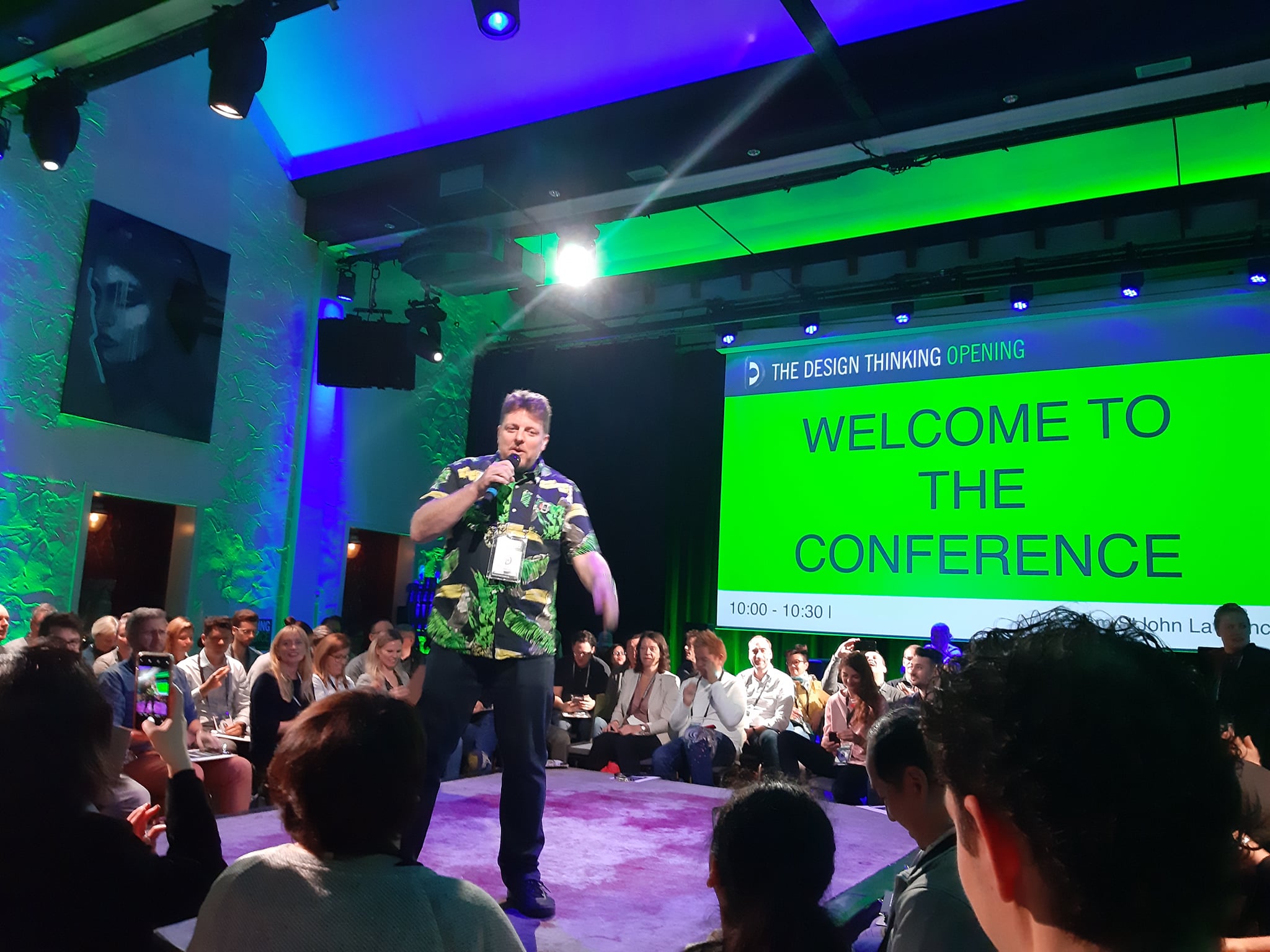
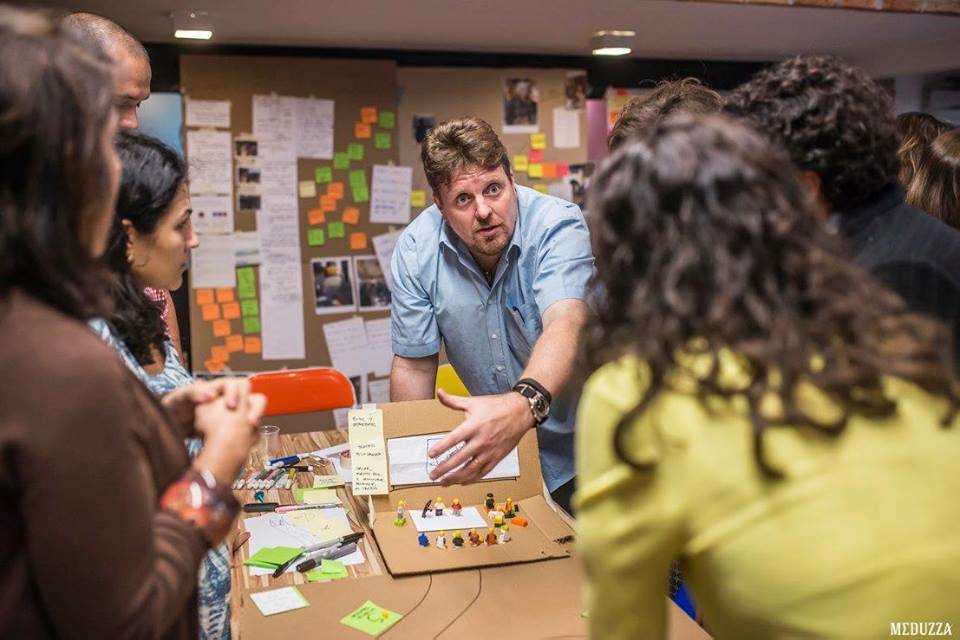
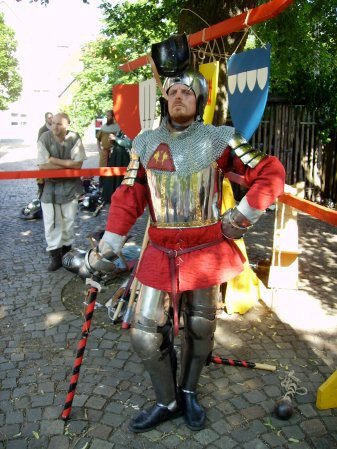

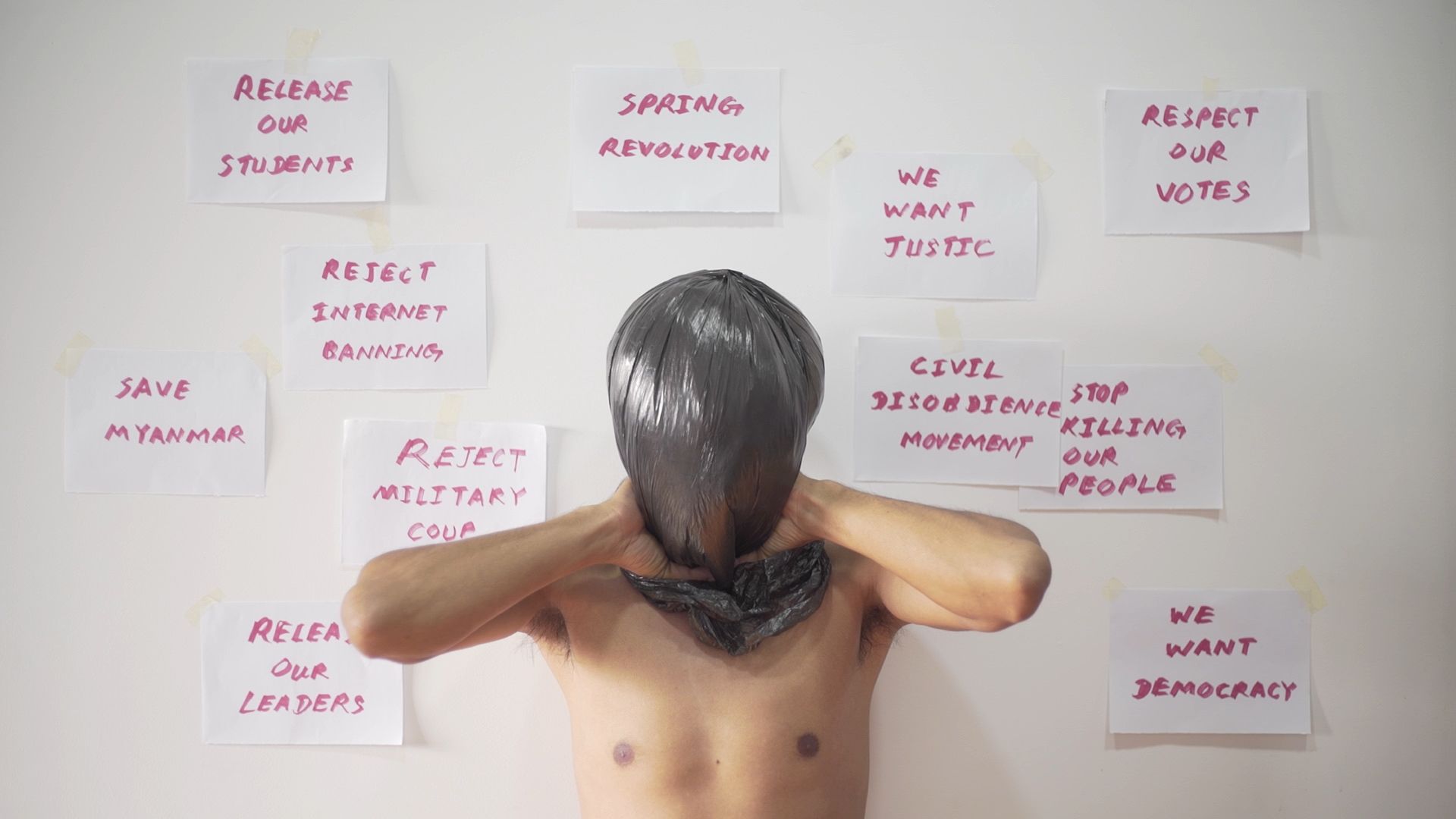
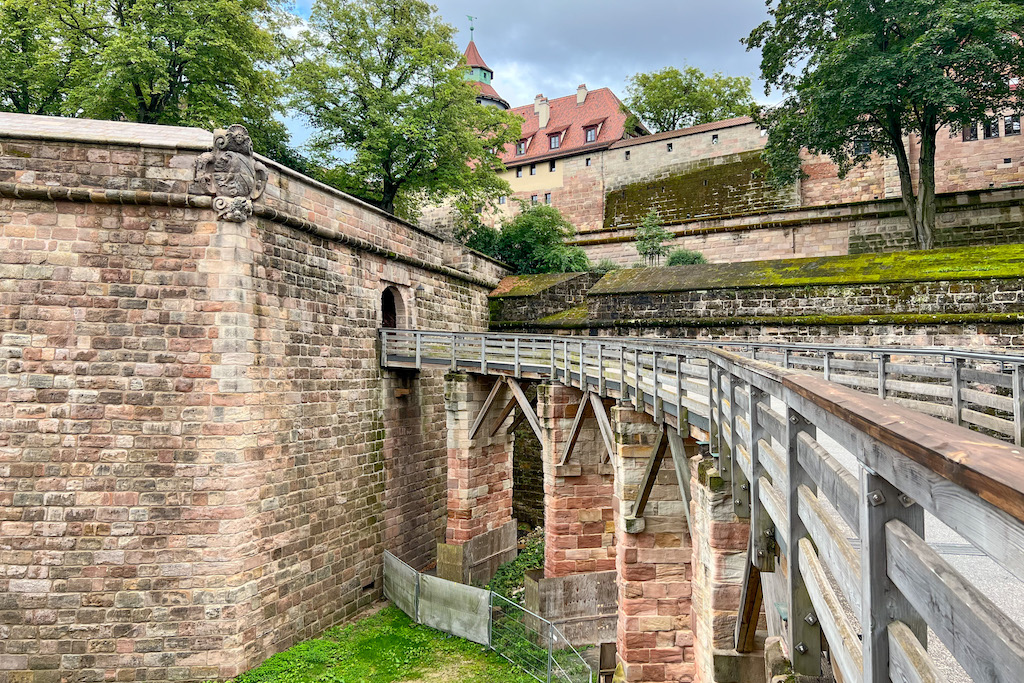
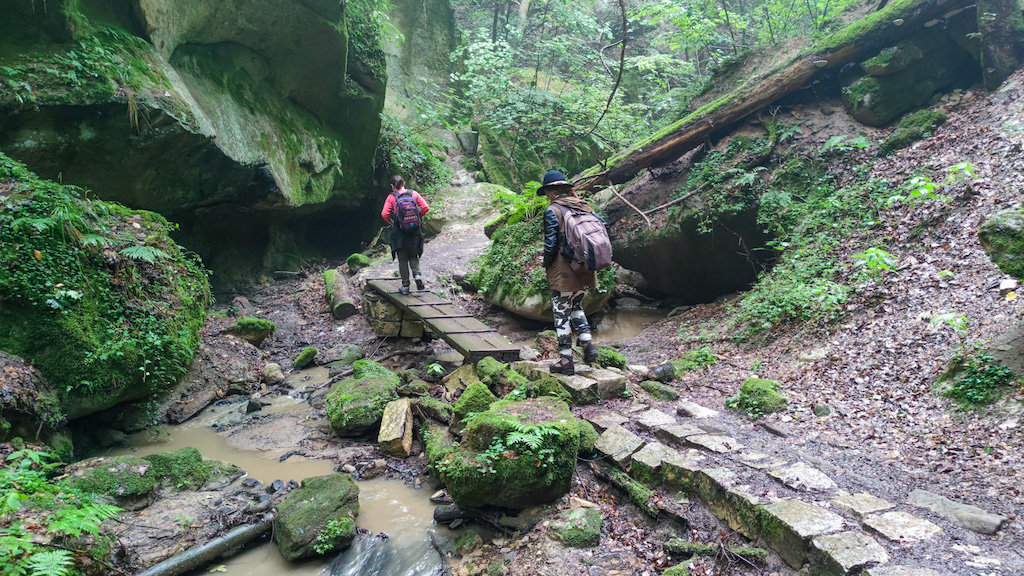
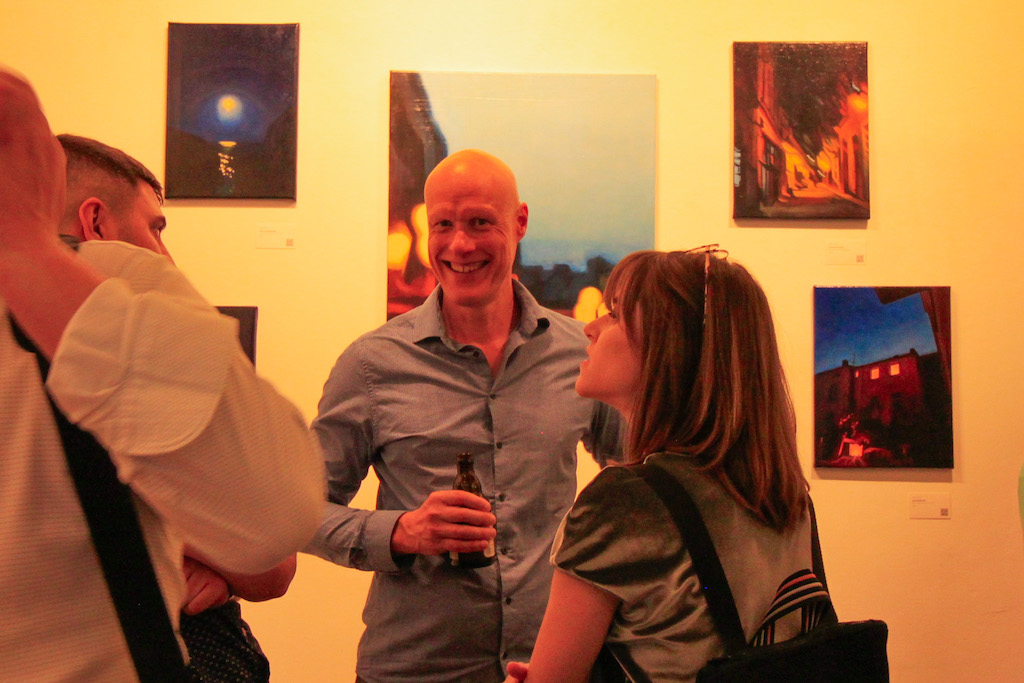

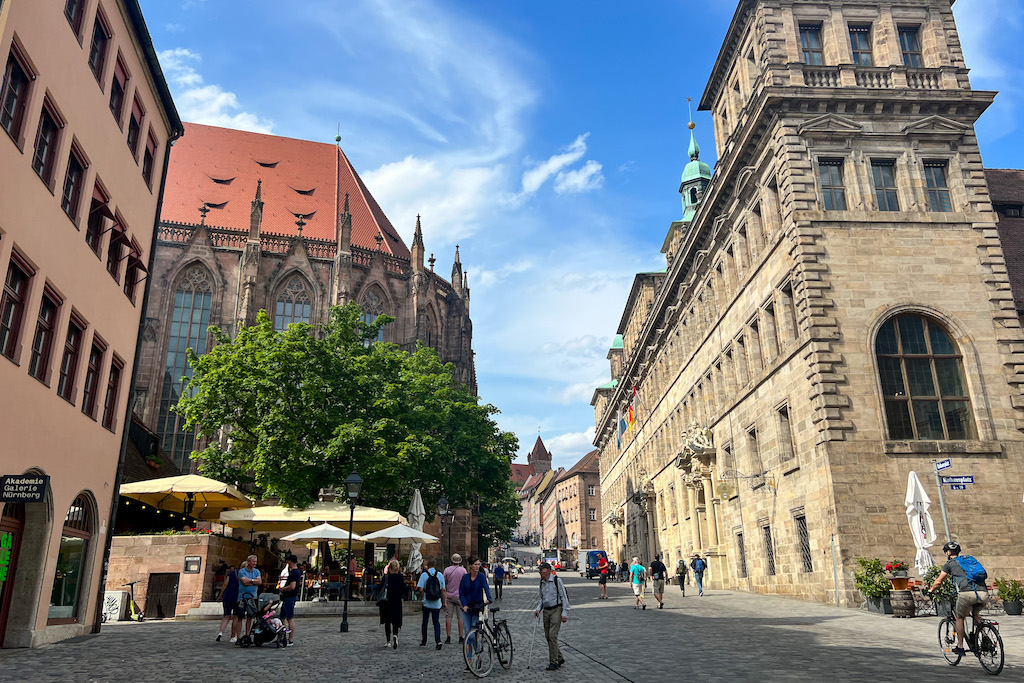
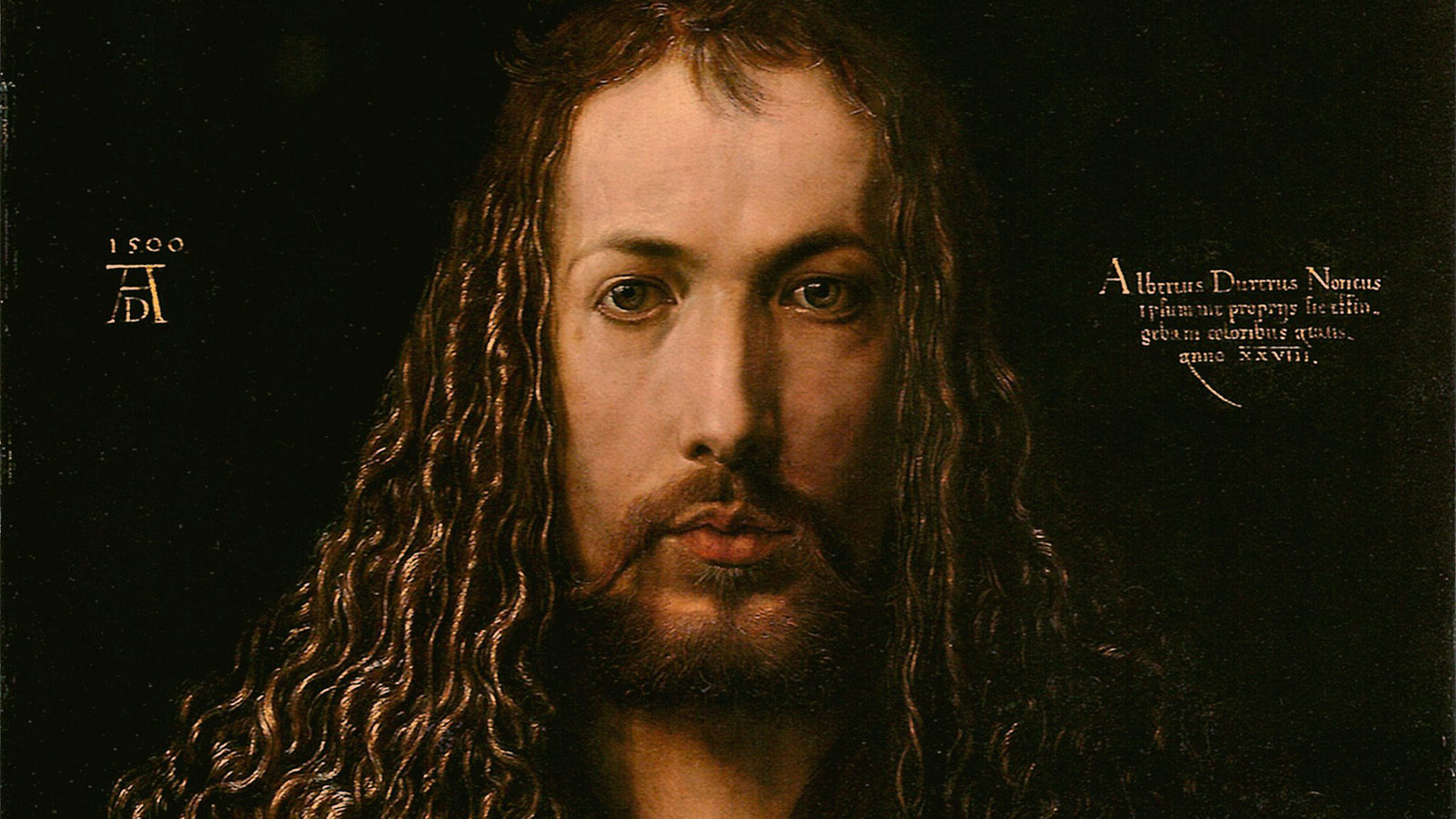
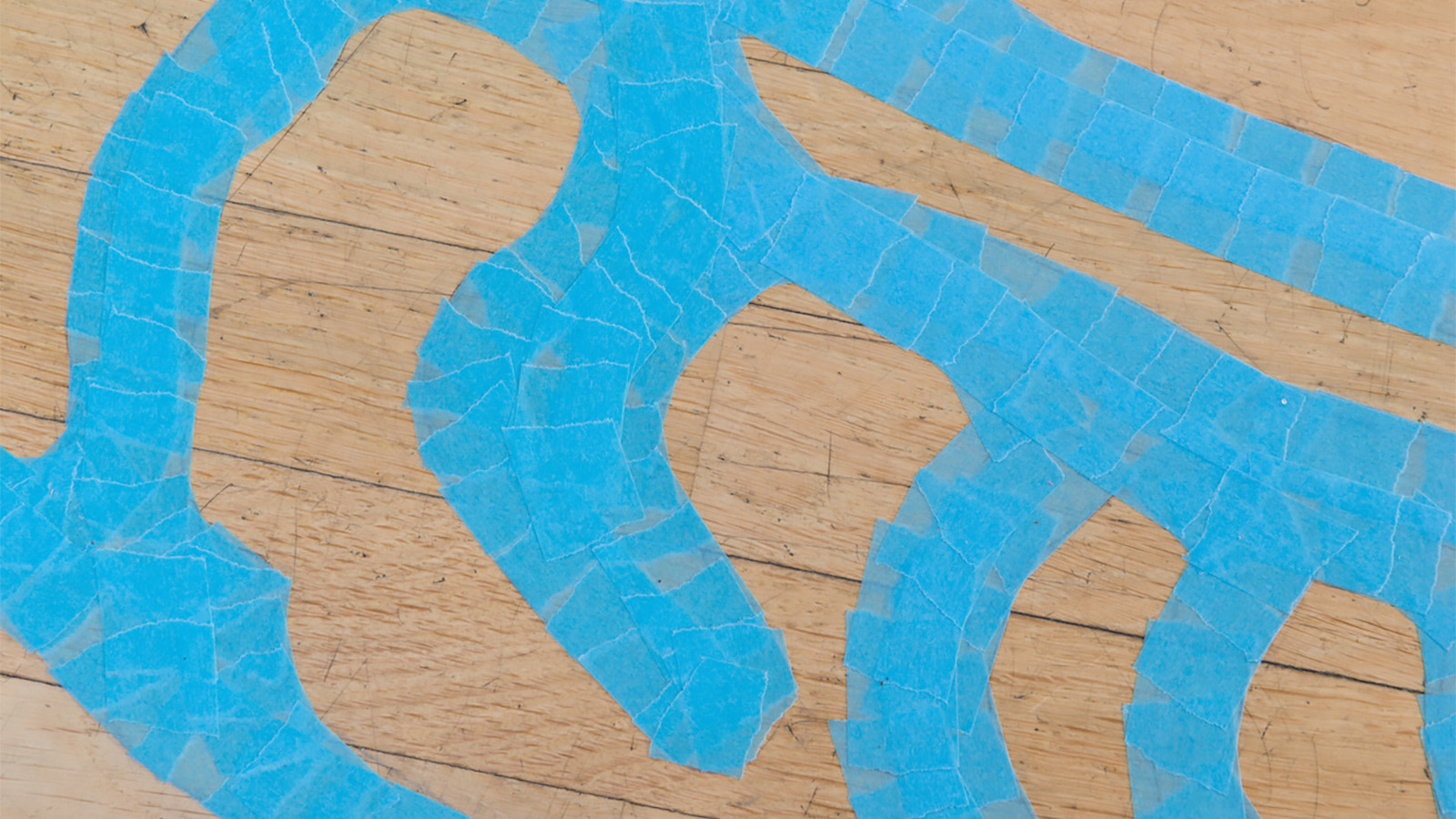


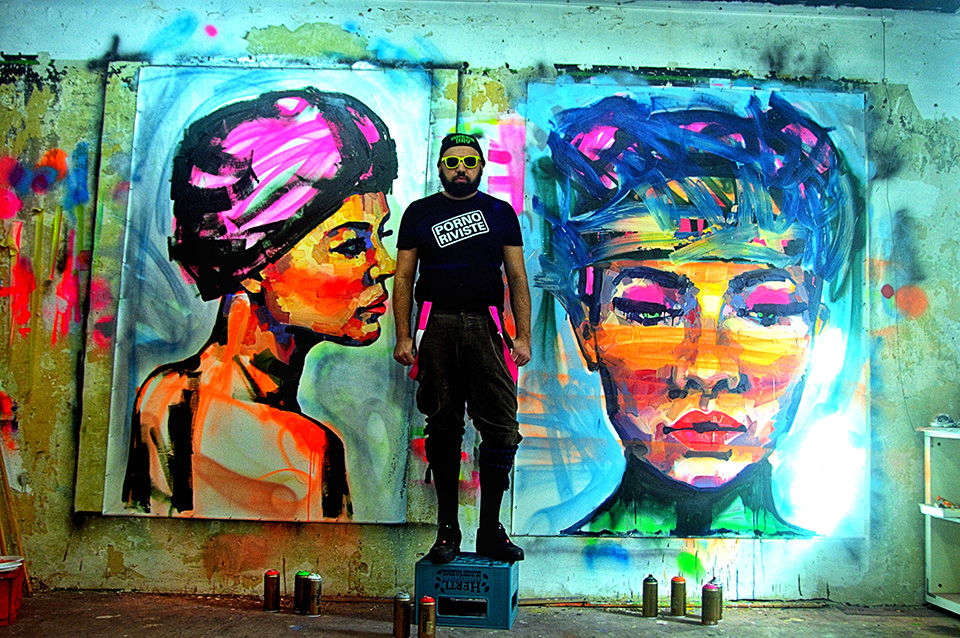

Thanks for having me in the Post!
It was a pleasure and thanks for taking time for the interview.
Well written!
And I’m still pleasantly surprised you got stranded here – and even voluntarily! 😎
Hey! 🙂